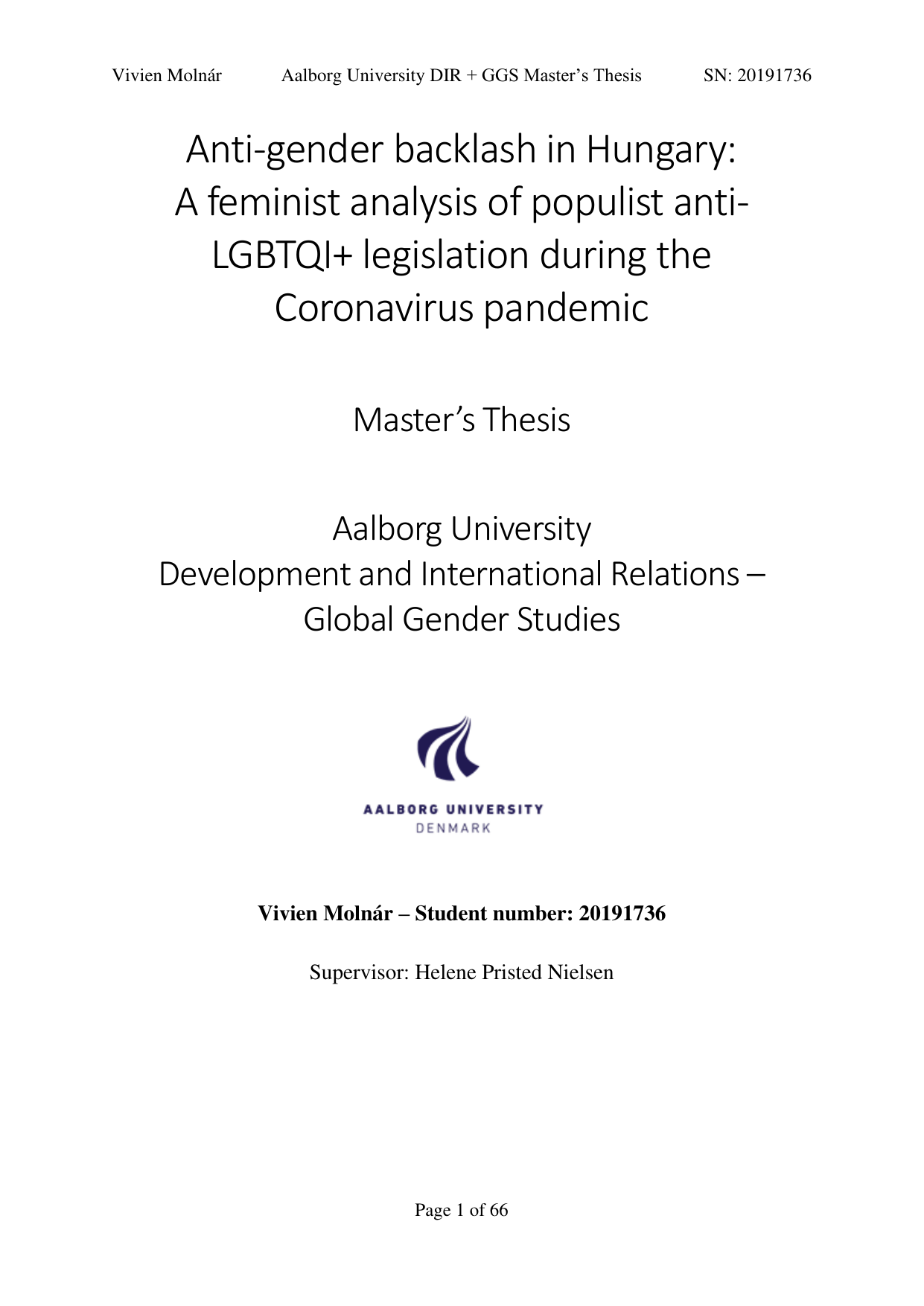
Anti-gender backlash in Hungary: A feminist analysis of populist anti-LGBTQI+ legislation during the Coronavirus pandemic
Author
Term
4. term
Publication year
2022
Submitted on
2022-04-19
Pages
66
Abstract
Background: Throughout the Global North, there is an observable backlash against gender or sometimes ‘gender ideology’. This results in the contestation of both current struggles for women’s and LGBTQI+ rights and already achieved freedoms. When anti-gender political forces hold legislative power, the rights of women and LGBTQI+ people can be actively rolled back. One such case is the Fidesz-KDNP government in Hungary, which used its large parliament majority and emergency powers during the coronavirus pandemic to target the rights of queer and trans people in the country. Objective: The objective of this thesis is to analyse four pieces of legislative action targeting the LGBTQI+ community in Hungary, banning legal gender recognition for trans and intersex people, banning queer people from adoption and banning queer and trans identities from the media and schools. Connections to anti-gender sentiments are investigated and other relevant concepts like the ‘protection of children’ is examined. Theoretical framework: The anti-gender backlash is conceptualised through the lens of populism, while the post-structuralist nature of Queer and Gender theory help make sense of different branches within the movement. Standpoint theory and feminist objectivity guide the author who has personal stake in the analysed legislation, merging research with active political struggle. Method: The WPR-approach to policy analysis by Carol Bacchi is used to critically assess the problem representations within anti-LGBTQI+ legislation. A literature review of other contemporary research on the anti-gender backlash in Hungary is also included. Results: The author argues that the Fidesz-KDNP government consciously imported antigender rhetoric into the political sphere of the country to further its agenda. The original use of anti-gender discourse was challenging EU legislation focusing on gender equality and women’s rights issues. Towards 2020, the original meaning of the phrase was overloaded with other, loosely connected issues. Through attacking the rights of LGBTQI+ people in the name of protecting children, the government shifted attention and scrutiny from its lousy handling of the pandemic. Key words: Hungary, anti-gender backlash, populism, LGBTQI+ rights, WPR-approach
Keywords
Documents
